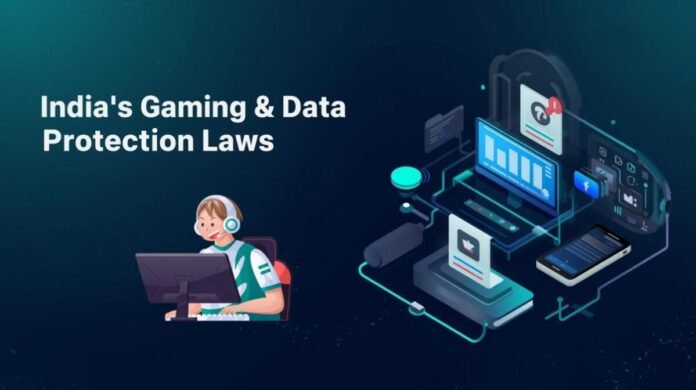
Key Points:
- Online Gaming Act 2025 and DPDP Act rules to be enforced from October 1, 2025
- Complete ban on real-money gaming operations, affecting major platforms like Dream11 and MPL
- Government ensures user fund refunds through banking partnerships
- DPDP Act rules to be notified by September 28, 2025
- Industry claims 200,000 job losses; government disputes figures
New Delhi: Information Technology Minister Ashwini Vaishnav has confirmed that India’s comprehensive Promotion and Regulation of Online Gaming Act, 2025, will officially come into effect on October 1, 2025. This landmark legislation, which has already disrupted the $23 billion online real-money gaming industry, marks a decisive shift in India’s approach to digital gaming regulation.
Simultaneously, the government has finalized rules for the Digital Personal Data Protection (DPDP) Act, 2023, with official notification scheduled for September 28, 2025. Both regulatory frameworks will introduce stringent compliance requirements that will fundamentally reshape India’s digital landscape.
Extensive Industry Consultation Process
The implementation follows nearly three years of intensive negotiations between the government and online gaming companies. Minister Vaishnav emphasized the collaborative approach, stating that multiple rounds of discussions were conducted with gaming platforms and banking institutions to ensure smooth transition.
“The rules will be implemented on October 1st, but there will be another meeting with the industry before that. If companies need additional time, the government will consider that,” the minister clarified, indicating potential flexibility in the rollout timeline.
The government has prioritized addressing user concerns, particularly regarding fund withdrawals. Through coordinated efforts with banks and gaming companies, officials have developed mechanisms to ensure users receive their deposited money within stipulated timeframes, removing a major implementation hurdle.
Major Platform Shutdowns Begin
Leading real-money gaming platforms including Dream11, Gameskraft, Games24x7, MPL, and Baazi Games have already initiated shutdown procedures for their cash-based gaming operations. These platforms collectively served millions of active users across India, making this one of the most significant regulatory disruptions in the country’s digital economy.
The new law imposes a complete prohibition on all money-based gaming activities, including payments, promotional campaigns, and advertising. This comprehensive ban extends beyond gameplay to encompass the entire ecosystem supporting real-money gaming operations.
Employment and Economic Impact Disputed
Industry representatives claim the legislation will result in approximately 200,000 job losses and force closure of around 400 companies across the gaming ecosystem. However, government officials have contested these projections as significantly inflated.
According to ministry data, only slightly over 2,000 employees are directly employed in the real-money gaming sector, suggesting the industry’s impact estimates may include indirect employment and ancillary services.
Legal Challenges Continue
The gaming industry’s legal challenges have faced setbacks, with the Madhya Pradesh, Karnataka, and Delhi High Courts dismissing related petitions. The matter now rests with the Supreme Court, where the industry awaits crucial decisions on both the regulatory framework and substantial tax demands imposed by the central government.
DPDP Act Implementation Strategy
The Digital Personal Data Protection Act, 2023, represents India’s first comprehensive privacy legislation. Originally conceived in 2018 as the Personal Data Protection Bill under Justice B.N. Srikrishna’s committee, the law underwent extensive revisions before receiving Parliamentary approval on August 3, 2023, and Presidential assent on August 12, 2023.
The government plans a phased implementation approach, beginning with rule notification on September 28, followed by detailed FAQ guidelines to help businesses and citizens understand compliance requirements. This methodical rollout aims to minimize confusion and ensure effective adoption of India’s privacy framework.
Strategic Implications
These simultaneous implementations signal India’s commitment to establishing robust digital governance frameworks. The gaming law addresses concerns about addiction and financial exploitation, while the DPDP Act positions India among nations with comprehensive data protection regimes.
The October 1st deadline provides stakeholders limited time for final preparations, though the government’s indication of potential timeline flexibility suggests recognition of implementation complexities. As major platforms wind down operations and legal challenges continue, the coming weeks will be crucial for determining the final shape of India’s digital gaming and data protection landscape.












































